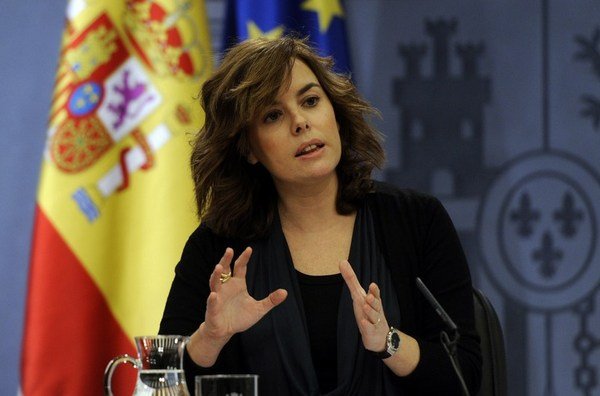 23 May 2012 – Spain’s Deputy Prime Minister, Soraya Sáenz de Santamaría announced on Friday 18 May 2012 that some changes have been made to the draft access to information law based on the suggestions made in the almost 3,700 comments submitted during the public consultation, carried out between 26 March and 10 April 2012.
23 May 2012 – Spain’s Deputy Prime Minister, Soraya Sáenz de Santamaría announced on Friday 18 May 2012 that some changes have been made to the draft access to information law based on the suggestions made in the almost 3,700 comments submitted during the public consultation, carried out between 26 March and 10 April 2012.
Precisely what these changes are, however, is not known because the new draft of the law, presented on 18 May to the Council of Ministers (Cabinet) has not yet been made public. Sources inside the Ministry of the Presidency (Cabinet Office) confirmed to Access Info Europe on 23 May that the draft would be made public as and when it is passed for comment to the Council of State and the Data Protection Agency, but that the process of forwarding the law is still “underway”.
The announcement of the changes to the draft was accompanied by the claim on the Ministry of the Presidency website that the process of adopting this law has been “an act of transparency in itself”. This claim is undermined by the lack of information surrounding the process. The government has not responded to calls from civil society to make public the submissions to the public consultation in order to check a promise in Spain’s OGP Action Plan that the law would be reformed in line with the majority of the submissions received.
Furthermore, a Commission of Experts convened by the Ministry of the Presidency’s Centre of Constitutional and Political Studies, was not informed at its 17 May meeting that a new version of the law had already been drafted and was about to be processed.
Helen Darbishire, Executive Director of Access Info Europe who is a member of the Commission of Experts observes that “It is an insult to the high level experts to have them debate a draft law which is already an out of date version.” The experts come from within government, from academia, with a handful of civil society organisations also invited.
Some leading constitutions lawyers proposed on 17 May that the law should be amended to recognise a fundamental right of access to information in line with international standards and an analysis by government expert concluded that in its current version the law falls below the standard set by the Council of Europe Convention on Access to Official Documents.
In spite of this, according to the minimal information released by the government in a press conference following the Council of Ministers meeting, many of the changes proposed by the public – and now by the experts – have not been taken into account because they don’t “match the philosophy of the law” and to avoid “making gestures towards including provisions which are then not implemented.”
The suggestions which, according to the Vice President, have been incorporated, include, applying the law to professional colleges (e.g. lawyers, architects) and to bodies responsible for public procurement. The law will also require publication of detailed material on public procurement contracts, including on smaller contracts which will be published every quarter.
Another changes is to ensure that any information which must be published proactively may also be requested, something which was previously not possible because the limited scope of the right to request information meant that the proactive part of the law is wider in some respects than the right to ask.
Access Info Europe is continuing to demand the publication of the new version of the law as well as the submissions to the public consultation(something which has been done in the case of other consultations, such as that on the Decree on the Re-use of public sector information). Access Info reminds the Spanish Government that in its Open Government Partnership Action Plan it committed to changing the draft in line with majority comments received during the consultation and the only way to know for sure that this has happened is through full transparency around the consultation process.

